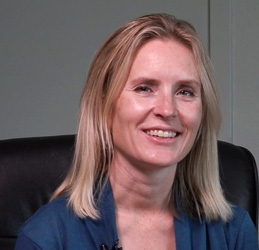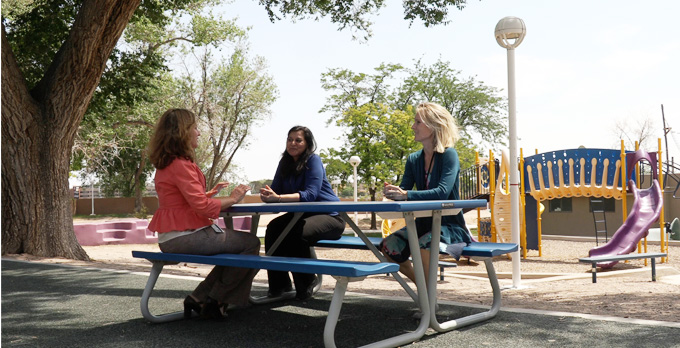September is Suicide Awareness Month, and amidst this crucial time of reflection and outreach, it is imperative to shed light on the often-underdiscussed topic of depression. Kristina Sowar, MD, an associate professor in The University of New Mexico’s School of Medicine, Department of Psychiatry and Behavioral Sciences, lends her expertise to help us better understand this complex mental health condition and the critical importance of recognizing its signs, especially in children.
"We don't talk about depression a lot," Sowar begins. "Sometimes people don't notice the signs of depression until they're extreme."
One major hurdle in addressing depression is the stigma surrounding it, which is particularly prevalent when it comes to children.
“Depression is a mental health condition, a mental health disorder. But I think for many people, it’s more than just mental health. It’s also their entire life – their physical health and energy,” Sowar says.
Depression is a global issue, with tens of millions of people in the United States alone experiencing it at some point in their lives. It can begin in childhood and often carries over into adulthood.
"Some people will develop it when they're young. Many people, not until they're teenagers or adults, but for most people who do experience depression as an adult, they've also experienced it to some extent as a teenager or a child as well," Sowar explains.
Depression is a multi-faceted condition with various contributing factors.
"There are multiple routes to depression," notes Sowar. "Some people are predisposed to developing certain health conditions, often due to a family history of depression or other mental health conditions. Additionally, life challenges such as trauma, poverty, or limited access to health care resources can precipitate depression."
Lifestyle factors also play a role, such as how well we sleep, how well we eat, and how well we take care of our physical bodies can all contribute to the development of depression. Recognizing the signs of depression can be challenging, as it can manifest in diverse ways.
Sowar advises, "depression can manifest in multiple different symptoms, from feeling tired, less motivated, and finding less pleasure in activities to increased anxiety and restlessness."

Depression is a mental health condition, a mental health disorder. But I think for many people, it’s more than just mental health. It’s also their entire life – their physical health and energy
For those concerned about themselves or others, Sowar recommends open conversations. "Noticing changes in behavior, such as irritability, withdrawal, or alterations in sleep and eating habits, can be key indicators," she says. "Depression is a treatable human illness, not a sign of weakness. Reach out, express concern, and encourage dialogue about what someone may be struggling with."
Noticing behavioral changes is a key factor when it comes to children and depression, who might not yet have the skills to articulate what they’re experiencing and how they’re feeling. There are therapists who specialize in care for children, and various approaches even among these specialists, such as play therapy, art therapy, family therapy, and more. When it comes to treatment, there is no one-size-fits-all approach. In people of all ages, professional care, psychotherapy, and medications are some of the most helpful options. Addressing the root causes of depression, whether through stress reduction, improving sleep and/or nutrition, can also be beneficial.
Just as the experience of depression does not typically come on suddenly, recovery from depression is a process that takes time, and Sowar emphasizes the need for patience.
"We often want a quick fix but recognizing that depression can be a sign that there is space for us to change some things in our lives is essential," Sowar says. “It's a healing process, but one that we know most people recover from, with lots of growth opportunities.”
Depression can also be linked to periods of grief, chronic medical illness, or significant life changes. By fostering open conversations, increasing awareness, and seeking professional help when needed, we can work together to combat the stigma surrounding depression and provide vital support to those in need during Suicide Awareness Month and beyond.
Please take a moment to visit the UNM Health Suicide Awareness Month webpage for offerings throughout the month of September and more.
